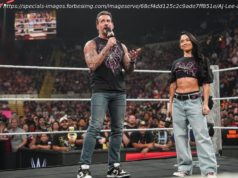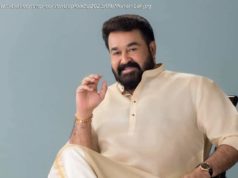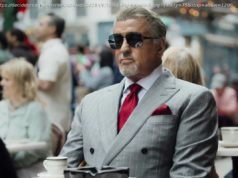Chadwick Boseman portrays Thurgood Marshall in historical drama.
In February, after having previously portrayed Jackie Robinson in » 42 » and James Brown in » Get On Up, » Chadwick Boseman will slip on a supersuit to play the Marvel Comics character Black Panther in a standalone action film. With that, Marvel Films and its fans proudly declare, Hollywood will have given the world its first black-led superhero film from a major studio.
But that’s not true, exactly. In fact, won’t even be the first black-led superhero film starring Boseman, as it turns out. That honor goes to « Marshall, » a surprisingly embraceable courtroom drama in which the actor portrays a young Thurgood Marshall, before Marshall became the nation’s first black Supreme Court justice.
How is that a superhero movie, you ask? There’s no costume, no cape, no leaping of buildings in single bounds. True, but as the lawyer for the NAACP while the United States was in the throes of the Jim Crow era, Marshall traveled the country, going from town to town, whenever and wherever he was needed, to fight for truth, justice and the American way.
What could be more superhero-like than that?
Think « Batman » crossed with « Perry Mason, » and you’ve got an idea of the tone of director Reginald Hudlin’s surprisingly embraceable drama.
And while we’re comparing it to other projects, it’s worth noting that Hudlin’s film also has a touch of « Hidden Figures » to it, inasmuch as it’s an engaging and inspirational drama that tells a story that probably should have been told long ago. Both films also manage to overcome their lack of filmmaking flash with strong performances, thoughtful narratives and nice doses of well-timed humor.
That’s no small feat for « Marshall, » which recounts a life-or-death court case that feels like it could have served as real-life inspiration for Harper Lee’s « To Kill a Mockingbird. » In this particular case, though, Hudlin’s film makes it clear that communities in the Deep South by no means have exclusive rights to deeply rooted racism.
Set in 1941, it follows Marshall — then the NAACP’s only lawyer — as he is dispatched to the WASP stronghold of Bridgeport, Connecticut, to defend a black chauffeur named Joseph Spell (and played by Sterling K. Brown) after Spell is accused of raping and attempting to murder the wife of his well-heeled employer (Kate Hudson). At every turn, Boseman’s Marshall encounters a steady stream of prejudice, from the judge who refuses to let him speak in court, to the pugilistic townsfolk, to the « whites only » water fountains.
His response: To hold his head high, stiffen his back and soldier on with dignity and confidence. You know, as superheroes do.
In this case, that sees him teaming with a reluctant sidekick played by Josh Gad (« Frozen »), a Jewish lawyer who agrees — against his better judgment — to sign on as local counsel to help defend Spell. Well-acquainted with the sting of anti-Semitism, he ends up playing a crucial role in Marshall’s fight.
For Hudlin’s purposes, Gad also provides a crucial bit of comic relief, as his and Boseman’s on-screen chemistry helps keep « Marshall » from descending too far into melodrama or darkness. That starts, in fact, with their very first scene together, a subtle but well-played moment in which Boseman’s Marshall — who even adopts a Batman-like rasp for the role — politely but firmly instructs Gad’s character to carry his luggage. Agog but decent, Gad can think of nothing to say, so he simply does as he is told and follows Marshall out of the train station.
It won’t be the first time he follows Marshall’s lead.
Such interplay also helps distract from the shortcomings of Hudlin’s film, which at times feels oversimplified and, often, a bit too on-the-nose, like a big-screen version of a tidy TV courtroom procedural. While it has at least one third-act surprise, « Marshall » doesn’t go many places or do many things — either technically or narratively — that you won’t expect.
Despite that, it works, and probably better than it should, with its blend of drama (highlighted by a memorable witness-stand monologue from Brown), humor and — best of all — fist-pumping triumph.
The film even closes the way a superhero film would, with Boseman’s Marshall being dispatched at the film’s end to another town (in Mississippi this time) to right another wrong. It’s probably pure pie in the sky to hope for a « Marshall » sequel, but it would be undeniably refreshing to see a socially conscious movie like this spawn the same sort of franchise that comic books tend to spawn.
As for whether audiences will get behind Hudlin’s film as enthusiastically as they supported director Theodore Melfi’s « Hidden Figures » last year remains to be seen. But they should. As with « Hidden Figures, » those who go to see « Marshall » won’t likely leave disappointed.
___________
MARSHALL 3 stars, out of 5
Snapshot: After playing Jackie Robinson in « 42 » and James Brown in « Get on Up, » Chadwick Boseman transforms into another American icon — Supreme Court Justice Thurgood Marshall — for a historical biopic focusing on a key early case in his career.
What works: The movie features a dose of well-timed humor, especially in scenes feature Boseman and co-star Josh Gad, which helps to enliven what could have been an otherwise weighty drama.
What doesn’t: The story itself feels oversimplified and, often, a bit too on-the-nose, like a big-screen version of a tidy TV courtroom procedural
Cast: Boseman, Josh Gad, Sterling K. Brown, Kate Hudson, Dan Stevens, James Cromwell. Director: Reginald Hudlin. MPAA rating: PG-13, for mature thematic content, sexuality, violence and some strong language. Running time: 1 hour 58 minutes. Where: Find New Orleans showtimes.






